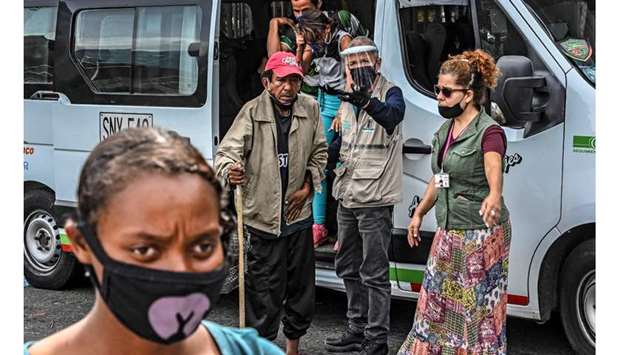Though they are strangely dissimilar – Uruguay is a progressive enclave with the lowest poverty index in Latin America, while Paraguay has poverty estimates of 30%-50% and is rife with corruption – both nations have kept their coronavirus death rates surprisingly low.
There have been just 13 deaths in Paraguay and only 25 in Uruguay so far, despite the porous land borders both countries share with Brazil, where the pandemic has claimed more than 50,000 lives.
Free of the endemic corruption and political strife that has plagued most other Latin American nations in recent decades, Uruguay in March switched painlessly from 15 years of centre-left administration to the centre-right administration of its new president, Luis Lacalle Pou, who has maintained the social advances of the previous administration.
Uruguayans can point to their long history of progressive social policies – including extensive public health coverage and almost 100% access to running water – as a key factor in containing the virus.
Uruguay is now gradually reopening its schools and shopping malls, albeit with social distancing, face masks and massive testing. Adapting to reduced physical contact has been no small feat in a country where kisses and warm embraces are the standard mode of greeting, and in which the sharing of the mate gourd, passed around between friends and family who sip the tea-like brew through the same metal straw, is deeply etched into the national psyche.
“The key to our success has been a quick response detecting and isolating cases,” Rafael Radi, one of the government’s chief Covid-19 advisers, said.
Testing is so aggressive that Uruguay is fourth worldwide after New Zealand, Australia and Thailand in the number of tests conducted per new confirmed case.
Uruguay conducts 1,610 tests per new case. By comparison, the US and UK conduct only 52 and 21 tests respectively.
Instead of seeking out only the contacts of confirmed cases, Uruguay sends out special teams to test random city blocks and critical job sectors such as construction workers, carrying out more than 57,000 tests so far – approximately 1.6% of its population of 3.5mn.
With just 882 positive cases since the virus arrived on March 13, Uruguay’s success has earned it comparisons with New Zealand, without it having the advantage of being an island surrounded by a vast ocean.
Uruguay is sandwiched between South America’s two largest nations, Brazil and Argentina, where numbers are soaring.
Its “red-hot” northern border with Brazil is a special source of concern. The 1,000-kilometre border has towns and cities pitched right on it. “Our greatest concern is the city of Rivera, where the border is only an imaginary line down the middle of an avenue,” said Radi.
About 170,000 Uruguayans and Brazilians live in Rivera and its Brazilian twin city Santana do Livramento, crossing the border daily to work, shop and visit family on the other side.
Widespread testing in Rivera is not replicated in Livramento. “We had one case of a Uruguayan woman who crossed the avenue to go shopping in Livramento, caught the virus there, then travelled all the way to Montevideo,” said Radi. “We had to do a lot of work to trace all her interactions.”
To the west, sandwiched between Brazil, Argentina and Bolivia, is Paraguay – a country where tereré, the ice-cold version of the highly communal mate tea, is ubiquitous – which has achieved a similar success in containing the pandemic.
The landlocked country of 7mn has recorded only 1,392 cases and 13 deaths to date.
Dr Antonio Arbo, an epidemiologist and former health minister, said the key to Paraguay’s success had been prompt, strict government measures, accompanied by good behaviour from the majority of the population.“Closing the borders, social distancing and an initial lockdown phase were successful when we analyse the data,” he said.
The government of President Mario Abdo Benítez was one of the first in the region to implement containment measures after just the second confirmed case of Covid-19 on March 10.

